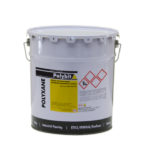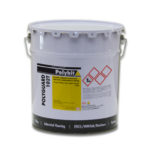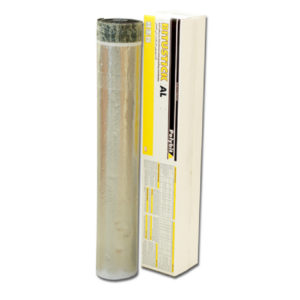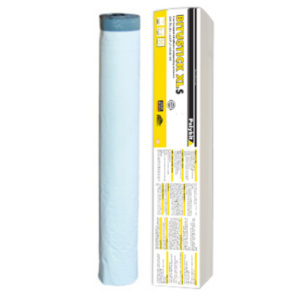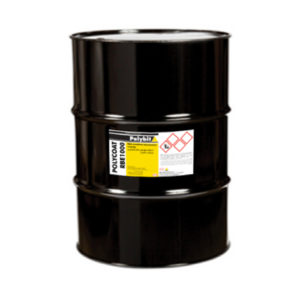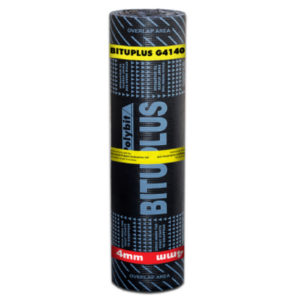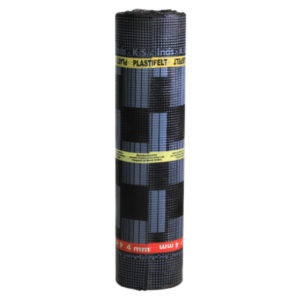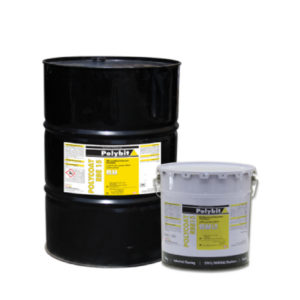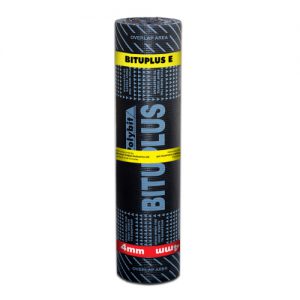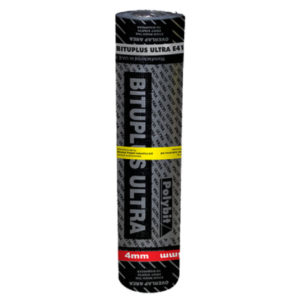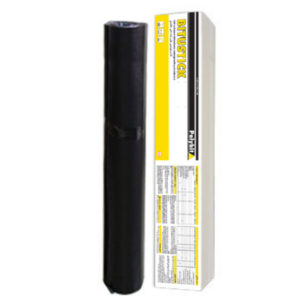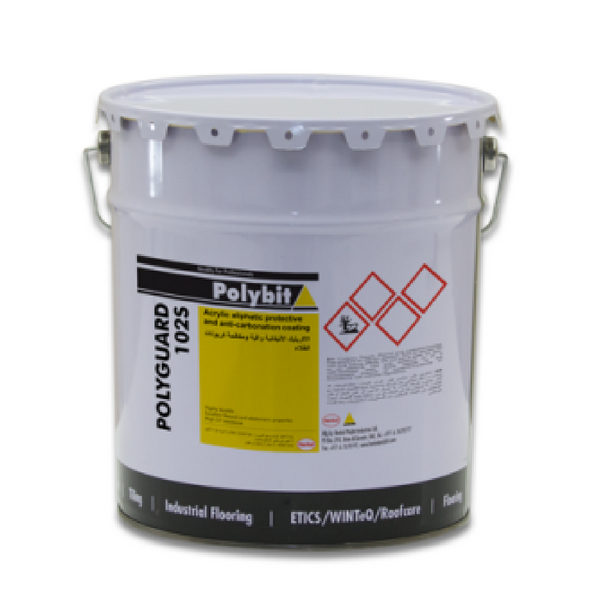
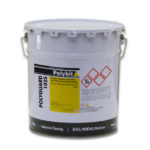
Polyguard 102S
Polyguard 102S
Acrylic aliphatic protective and anti-carbonation coating
Properties
- Highly durable
- Excellent flexural and elastomeric properties
- High UV resistance
- Resistance to long term weathering and water effect
- Excellent barrier to various chemicals like CO2, chloride ions, sulphates, oxygen, water and other aggressive contaminants
- Breathable and can allow moisture vapor to escape from the structure
- Available in various colors, Low maintenance cost
- Environment friendly – water based product suitable forenclosed areas
Description
Polygurard 102 S is a silk/smooth finished, flexible, one component, acrylic aliphatic based protective and anti-carbonation coating for reinforced concrete and masonry surfaces.
TDS For Polygurard 102 S
- Step by Step
Surface Preparation
The surface must be structurally sound and free of oil, grease, dust and other contaminants which will affect the bonding. Any structural cracks and potholes shall be repaired with a suitable repair mortar from the Polycrete* range of repairmortars. To fill pores, blowholes, minor honey combs or as a skim coat, Polyfill AC* shall be used. The surface to be treated should be presaturated with water prior to application. however, any standing water shall be removed prior to application. The temperature of the substrate should be min 10°C and min 3°C above the dew point of the air, temperature and relative humidity measured in the vicinity of the substrate.
Primer
Apply a penetrative primer coat of solvent based acrylic primer (PolyprimeAC) to the prepared dry surface. This will impregnate the surface and form an impervious barrier to moisture and other environmental contaminants. Depending on the porosity and nature of the substrate a second coat is recommended to be given after the first coat has dried off completely.
Mixing
Mix the contents of the Polyguard 102 S pail thoroughly before use.
Application
The first coat of Polyguard 102 S is to be applied on the dry primer. The coating can be applied with a brush, roller or an airless spray. apply the second coat at right angles to the firstcoat at the same rate. The second coat is to be applied only after the first is completely dry.

